Post
A catch
Save a catch to start your fishing logbook. You will be able to to share it with the community if yo want!
A fishing trip
Post an ad to go fishing with other fishermen
Save a catch to start your fishing logbook. You will be able to to share it with the community if yo want!
Post an ad to go fishing with other fishermen
Share a thought, a question with the community
My favorite cities
×Join our 4 fishermen and our 1 cofisherman in Des-Moines in Polk. The fishing forecast is currently 2.3. The most caught fishes here are the american eel, the chinook salmon, the blueback herring and the westlope cutthroat trout. Come try the most famous fishing techniques like the angling - using floats, trolling for mackerel, fishing bream from a dock or jetty or angling - using natural bait.
Our fishing forecast of Des Moines indicates the best time to go fishing in this city.
The American Eel
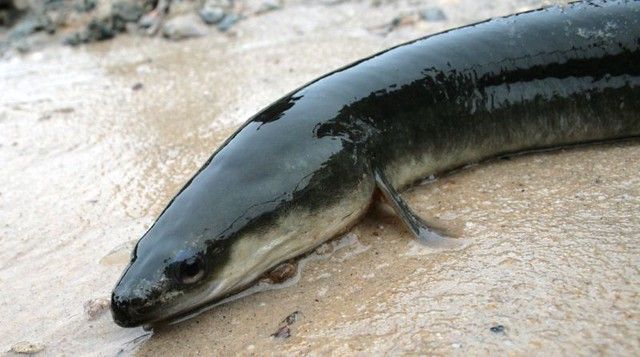
The American Eel belongs to the Anguillidae family. The size of the adult female can reach 1 m in length, while that of the male does not exceed 40 cm. Spawning takes place in mid-winter. Females lay 3 to 22 million eggs. He can live to be 50 years old. It can be fished from April to September. The American eel is a species of fish with a snake-like body all in length with fins that extend over its back, around its tail and along its inner surface. It has thick lips and a slightly longer lower jaw than her upper jaw, which gives her the appearance of having an overbite. The color of young eels varies from yellow-green or brown. Adult eels are grey with white or cream bellies.
The American Eel is a famous fish you can catch in Des Moines.The Chinook Salmon
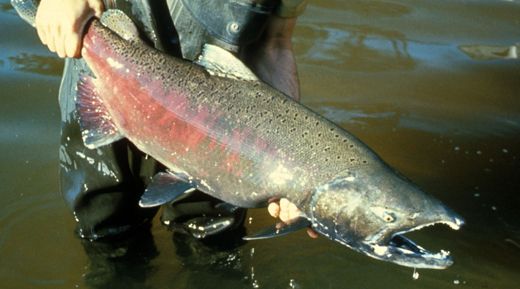
The Chinook Salmon belongs to the Salmonidae family. This salmon can reach 1.5 m for more than 60 kg and a lifespan of 9 years. It breeds from September to December. It is caught from July to September. The Chinook is blue-green, has purple on the back and top of the head with silvery sides and white belly. It has black spots on his tail and upper half of his body. Its mouth is often dark purple in color.
The Chinook Salmon is a famous fish you can catch in Des Moines.The Blueback herring
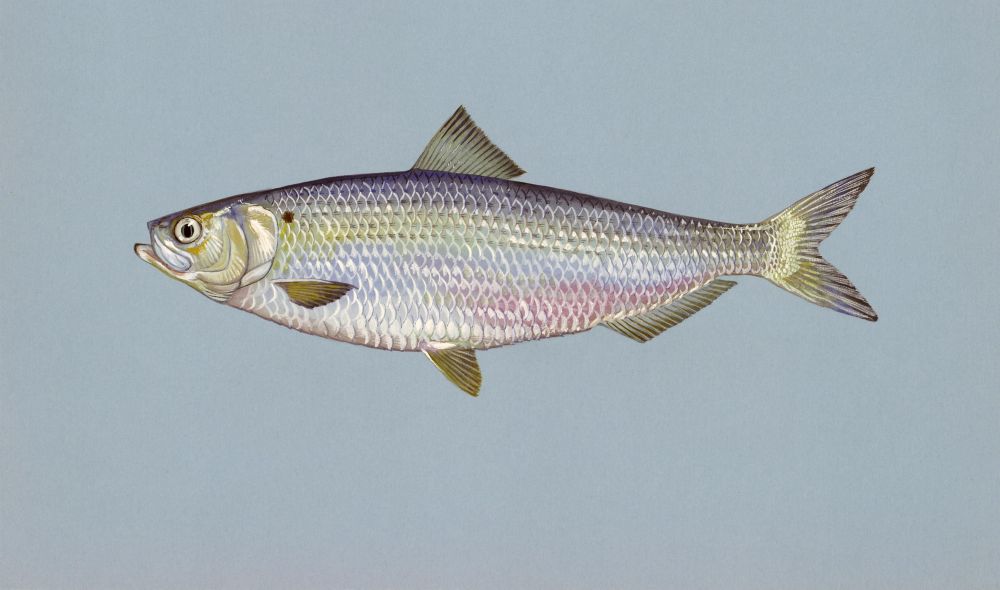
The Blueback Herring belongs to the Clupeidae Family. They reach a maximum size of about 40 centimeters and are assumed to live up to 8 years. They spawn from mid-March to the end of May. The Blueback herring can be fished all year round. These fish are silvery in color, have a series of scutes along their bellies and are characterized by a deep blue-green back. What distinguish this fish the most from other species is the black to dark color of its peritoneum (the mucous membrane of the abdominal cavity). It is one of the "distinctive" North American shads. They are often confused with alewives because it is difficult to differentiate between blue shad and alewife and, together, these two species are often considered collectively as "river herring". Female have larger eyes, greater body depth and a pearl to peritoneal white lining.
The Blueback herring is a famous fish you can catch in Des Moines.The Westlope cutthroat trout
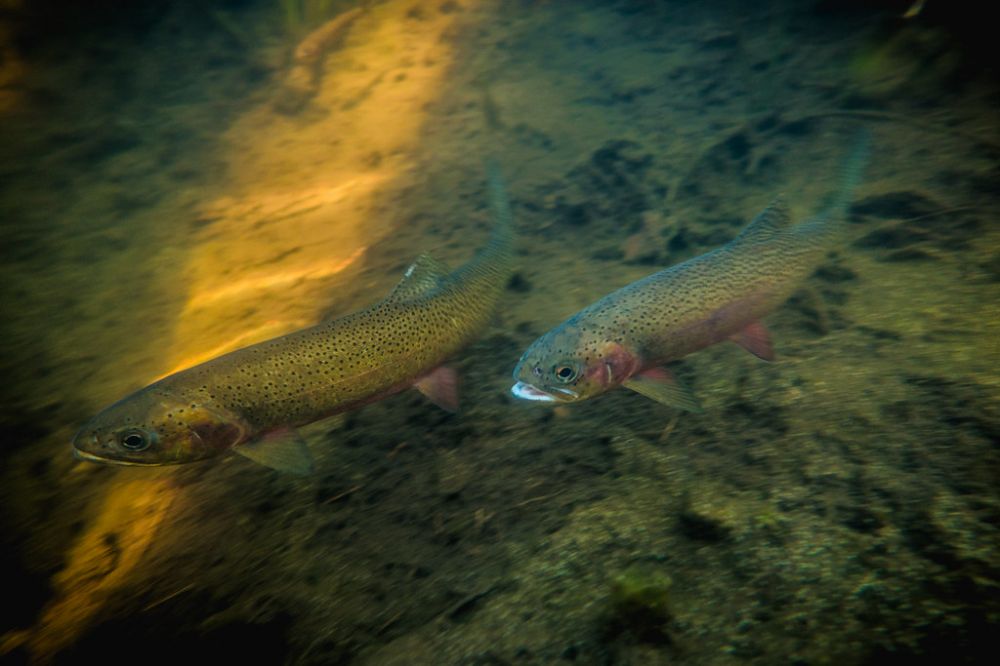
The Westlope cutthroat trout belongs to the Salmonidae Family. The average length of the fish is about 30 cm and rarely exceeds 46 cm. It has an average life span of 2 to 5 years. They breed in the spring. Fishing is prohibited because this fish is endangered. The fish has teeth under the tongue, on the roof of the mouth and on the front of the mouth. The gorge cutting the western slope is common in the waters of lakes and rivers upstream. The skin has small dark freckle-like spots, grouped towards the tail, and is mainly orange in color. They are distinguished from rainbow trout by the red, pink or orange markings under the jaw.
The Westlope cutthroat trout is a famous fish you can catch in Des Moines.The Lake trout
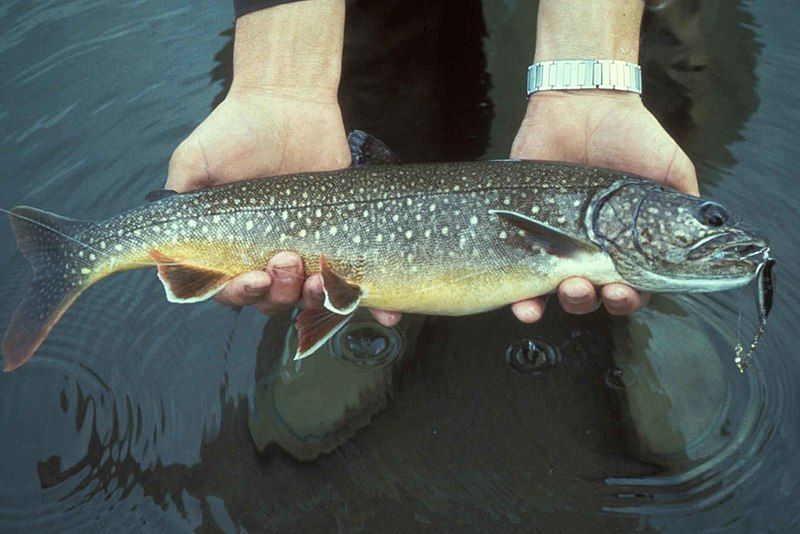
The Lake trout belongs to the Salmonidae family. The average size is 68 cm for 3 kg. It has a lifespan of 12 years. It spawns in fall. It can be fished all year round. Lake trout have a deeply forked caudal fin and a slate-grey to greenish grey body with a lighter underside. Cream to yellow spots are usually present on the head, body, dorsal and caudal fins. Lower fins are orange-red with a narrow white edge. Younger fish will have between seven and twelve marks of broken parr along their sides. The species supports nine to twelve gills and, unlike its cousin the brook trout (Salvelinus fontinalis), lake trout do not have a black band on the front edge of their anal and pelvic fins. Breeding males develop a dark lateral band on their sides.
The Lake trout is a famous fish you can catch in Des Moines.Our fishing forecast of Des Moines indicates the best time to go fishing in this city.
Our fishing forecast of Des Moines indicates the best time to go fishing in this city.
Our fishing forecast of Des Moines indicates the best time to go fishing in this city.
